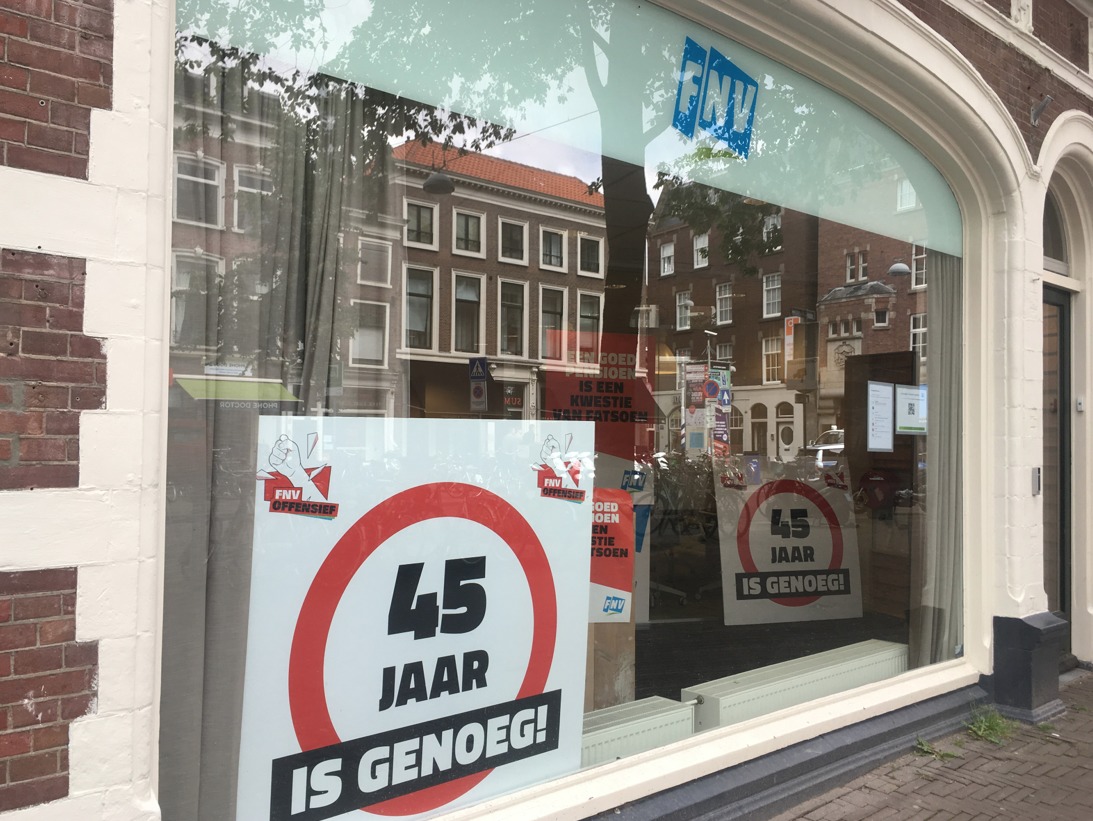Labour Day not a national holiday but still relevant, say unions

The Dutch could have had the day off on May 1, or Labour Day, but royalty and moderate governments got in the way, experts have told broadcaster NOS.
The Netherlands is one of the few countries in Europe where workers continue working on Labour Day instead of going on marches or simply enjoying a day in the sun.
European countries adopted Labour Day after American unions began commemorating a bloody strike in Chicago in 1888, marking action two years earlier in support of an eight-hour workday. The four-day strike ended in the deaths of seven police officers and four demonstrators, and several union leaders and anarchists were arrested and sentenced to death.
From 1890, Dutch unions also organised marches on May 1 but it would take until 1919 to abolish crippling working hours and establish an eight-hour working day.
“There was no limit to what employers could decide. Twelve-hour days all week were the norm,” social historian Alex Heerma van Voss told NOS.
Unlike in other countries, May 1 never became a national holiday in the Netherlands, possibly because there was no extreme right-wing or left-wing government to lay claim to it, Heerma van Voss said.
“The Nazis made May 1 a national holiday to put a spoke in the wheel of the socialists, while Franco proclaimed it the day of the patron saint of workers, San José Artesano.”
Another reason is that the Netherlands has several national holidays around that time, including Koninginnedag on April 30, now Koningsdag on April 27. “That argument is often trotted out but makes no sense,” Heerma van Voss said. “Japan, Poland and Serbia also have national holidays around that time and they simply turned it into a week’s holiday.”
Union FNV, which is organising a march starting on Museumplein on Thursday, would like to add May 1 to the list of national holidays.
“We think that the importance of unions should be remembered at least once a year,” FNV chief Tuur Elzinga said. “Unions are not something from the olden days; they are vitally important, particularly now. It is not a luxury, not something from granddad’s and grandma’s days.”
Not everyone works on May 1, Elzinga said. In some collective agreements, including those for council workers and cleaners, workers can choose between their birthday or May 1 as a holiday.
The date is still relevant, Elzinga said. “It wasn’t just about an eight-hour working day in the States. It was about working conditions in general. And that is what it is still about. We have become richer as a country but the money is ending up in the pockets of the few.”
According to figures from statistics agency CBS, just 15% of Dutch workers are now members of a union, compared to 18% in 2018.
Thank you for donating to DutchNews.nl.
We could not provide the Dutch News service, and keep it free of charge, without the generous support of our readers. Your donations allow us to report on issues you tell us matter, and provide you with a summary of the most important Dutch news each day.
Make a donation